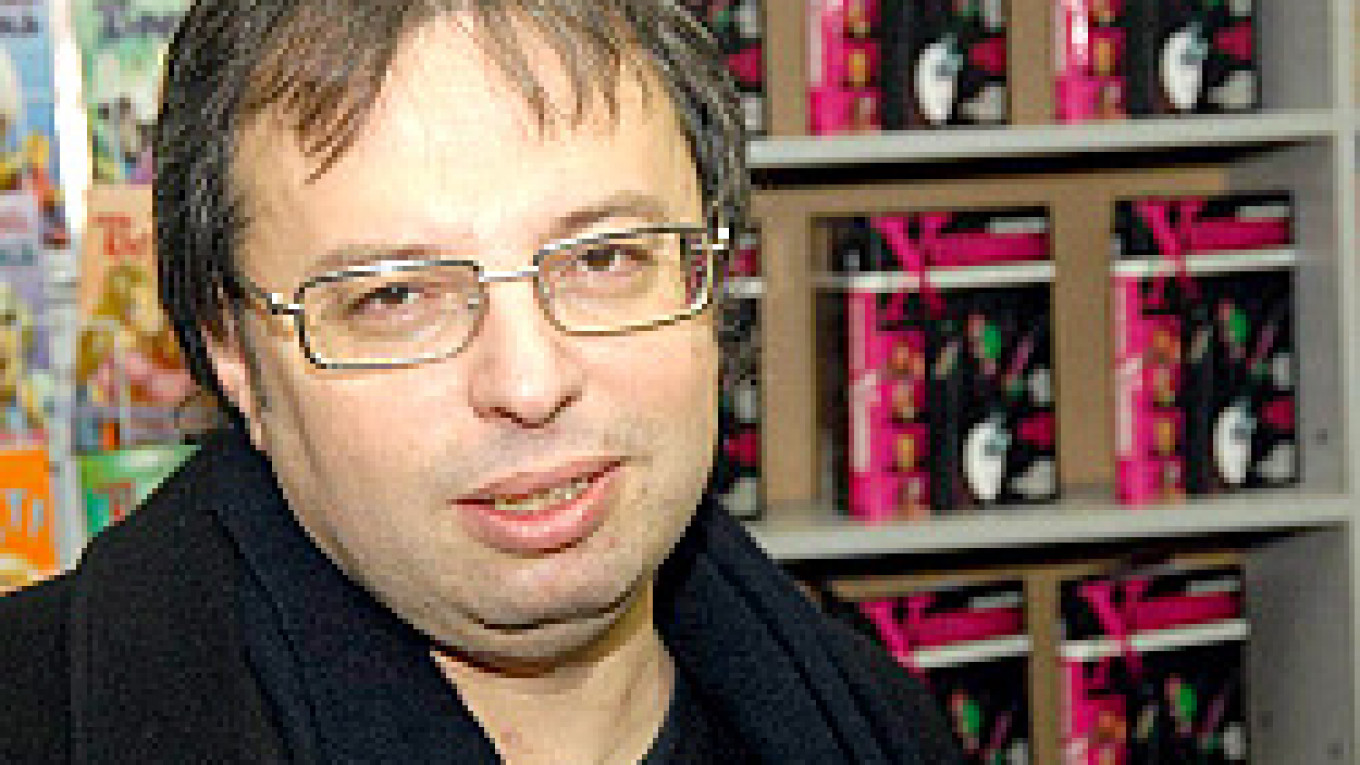This is one of many anecdotes related by Alexander Kushnir in his most recent book, "Headliners : Eight Major Russian Artists and Producers." Over the course of eight chapters, the book deals with personalities as well known on the domestic pop and rock scene as the above-mentioned Zemfira, such as Boris Grebenshchikov and the frontman of the group Mumy Troll, Ilya Lagutenko.
And Kushnir has plenty of interesting things to say about all of these people as he used to work as a publicist for most of them -- either independently or as head of Kushnir Production, Russia's first PR agency focused entirely on show business. However, this is not exactly a case of publicist turned writer. Kushnir has a long writing career, which started back in the 1980s in the samizdat music magazines "Urlait" and "Kontrkultura" and continued in the 1990s with books "The Golden Underground: an Encyclopedia of Rock Samizdat" and "100 Tape Albums of Russian Rock."
Although not stylistically perfect and a little chaotic at times, "Headliners" is still an interesting account of major events and developments on the domestic music scene in the last ten years, written by an insider. The book reveals things about artists and their producers that their fans most likely don't know, although the author's aim doesn't seem to be the publication of sensational details. He just recalls how a particular artist or producer came to prominence or, as in case of Grebenshchikov, who had been a domestic rock star long before becoming Kushnir's customer, creates an unbiased and insightful portrait of the artist.
Sometimes, Kushnir's relations with the artists weren't exactly a bed of roses. When he was working on texts for CD sleeves of Grebenshchikov's band Akvarium, the musician told Kushnir about his experiences with drugs in the early 1990s: "We began to do a lot of acid back in 1992. I found a fantastic German guy who was a Stalinist and would give us sacks of acid in exchange for busts of Stalin." But when Kushnir tried to use that in the CD sleeve text, Grebenshchikov deleted it:
 kushnir.ru "Headliners," published by St. Petersburg-based Amphora, is an insider's account, full of analyses of stars and events. | |
"After reading that part of the text, [Grebenshchikov] circled it with a black marker and crossed it out. 'Why did you do it?' I asked, politely. 'This is propagating drugs,' answered the founder of Akvarium in the passionless tone of a psychoanalyst. I nearly fell off my chair."
Similarly rocky were the publicist's relations with arguably the most talented artist to arrive on the Russian pop/rock scene in the late 1990s -- Zemfira. According to the author, Zemfira once refused to take part in a live TV show if Kushnir, her former publicist, were also present. Today, he writes about the incident without much bitterness:
"Later, I tried to persuade myself that all that dirt was done without Zemfira's knowledge, that she didn't know anything, that she didn't suspect anything."
Despite Kushnir's personal tastes, which are clearly closer to rock music than anything else, he gives quite a lot of space to more pop-oriented and commercial projects, such as singer Glyukoza, who raised quite a lot of controversy a few years ago when it turned out that vocals on songs for her first album were actually recorded by someone else. In his book, Kushnir offers his own account of this scandalous event.
While Kushnir appreciates the talent of producer Max Fadeyev, the account of working with one of his proteges, pop singer Katya Lel, has a certain comic touch:
"Katya liked two things -- getting into traffic jams and getting her emotions across to people in the form of questions. "Tell me, am I stupid?" she would yell at me on the phone. "Well, tell me frankly -- am I totally stupid?" I didn't even try to think about it, as I have hated rhetorical questions since high school. I must admit, in communication with Katya, I sometimes lacked kindness, wisdom and warm-heartedness."
In contrast, the last chapter, devoted to Ilya Kormiltsev, a lyricist, poet and publisher who died of cancer a year ago, is quite somber. It was added later, when Kushnir was already in the process of writing the book and learned about Kormiltsev's death at age 47. Kormiltsev, primarily known as the lyricist for the rock band Nautilus Pompilius, was neither a singer (although he was part of a musical project back in the 1990s) nor a producer, but still played an important part in the domestic rock music and culture at large. So his inclusion in the book alongside the other personalities is more than justified.
Vladimir Kozlov is a Moscow-based journalist, novelist and filmmaker.
A Message from The Moscow Times:
Dear readers,
We are facing unprecedented challenges. Russia's Prosecutor General's Office has designated The Moscow Times as an "undesirable" organization, criminalizing our work and putting our staff at risk of prosecution. This follows our earlier unjust labeling as a "foreign agent."
These actions are direct attempts to silence independent journalism in Russia. The authorities claim our work "discredits the decisions of the Russian leadership." We see things differently: we strive to provide accurate, unbiased reporting on Russia.
We, the journalists of The Moscow Times, refuse to be silenced. But to continue our work, we need your help.
Your support, no matter how small, makes a world of difference. If you can, please support us monthly starting from just $2. It's quick to set up, and every contribution makes a significant impact.
By supporting The Moscow Times, you're defending open, independent journalism in the face of repression. Thank you for standing with us.
Remind me later.


